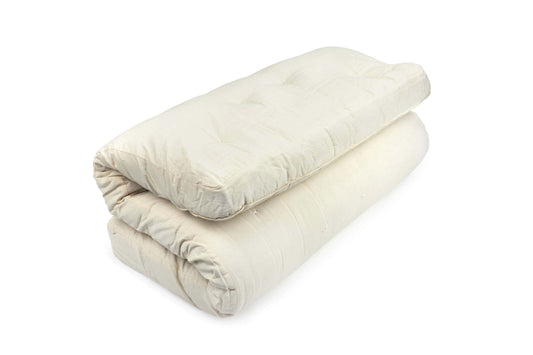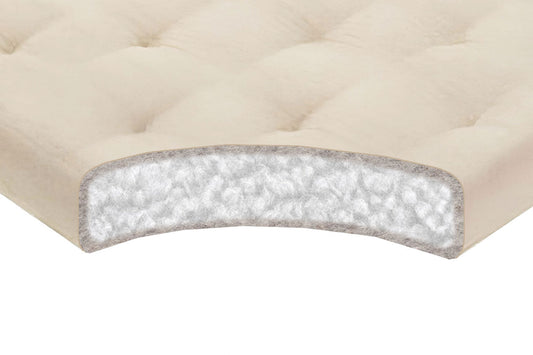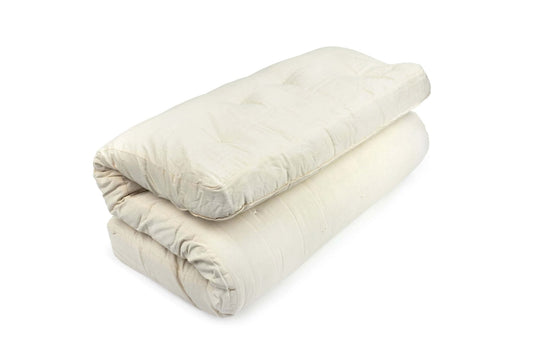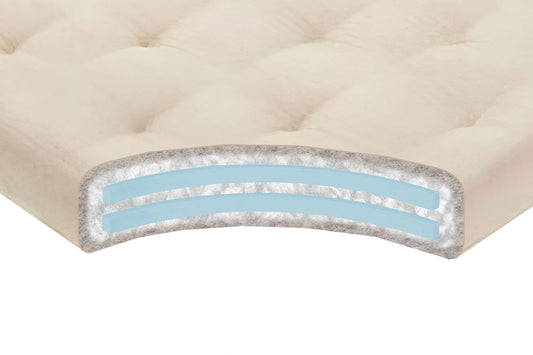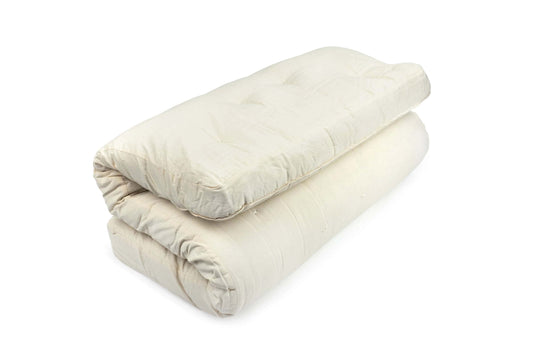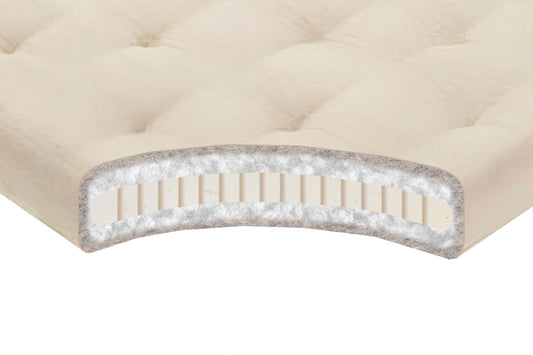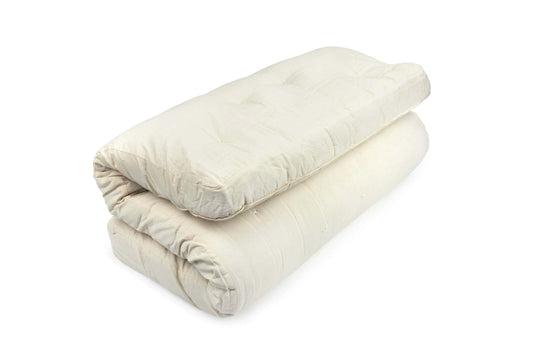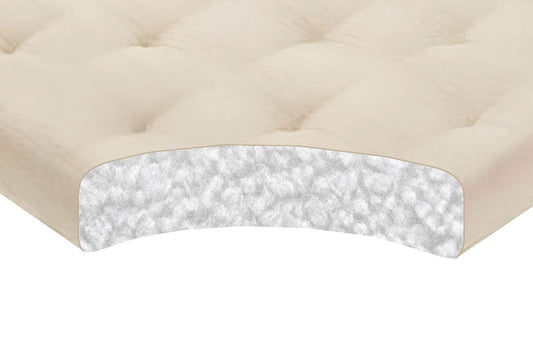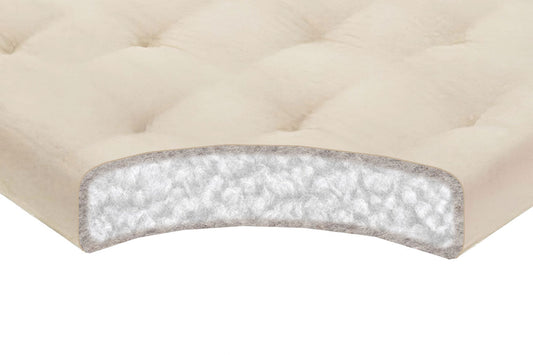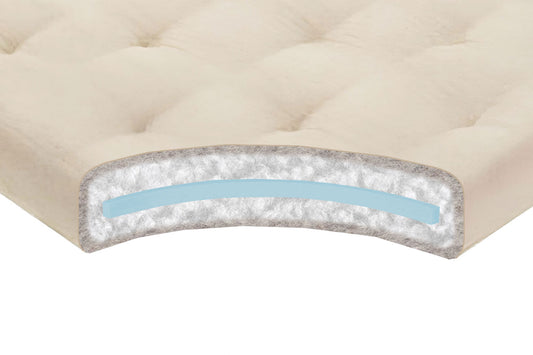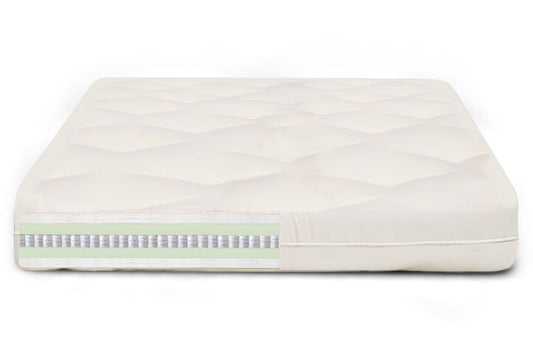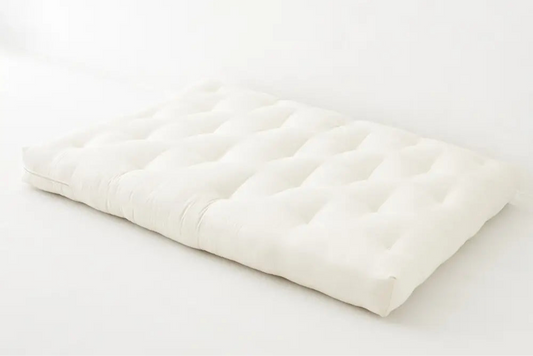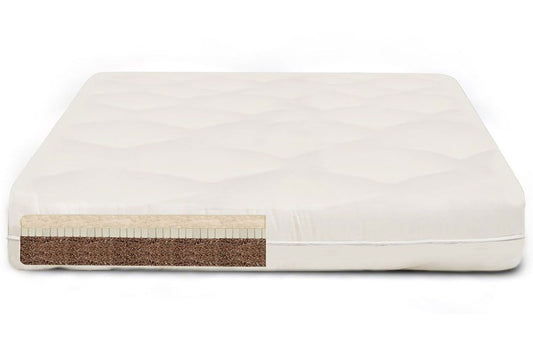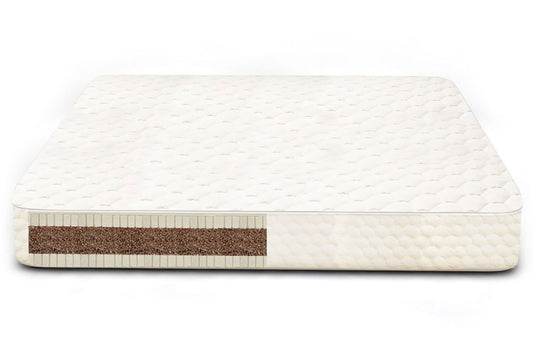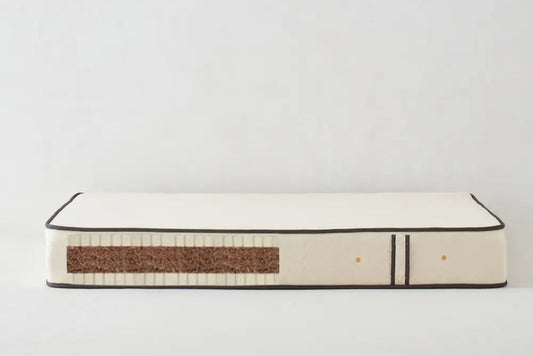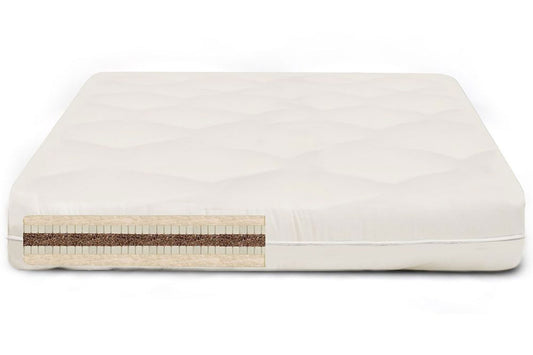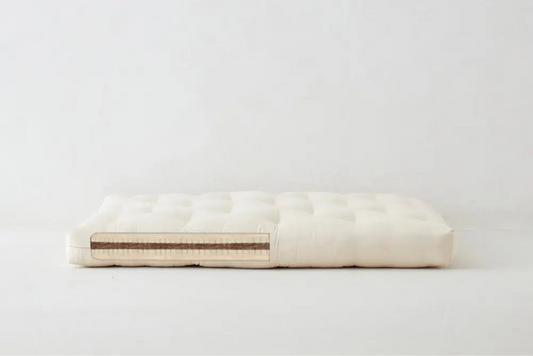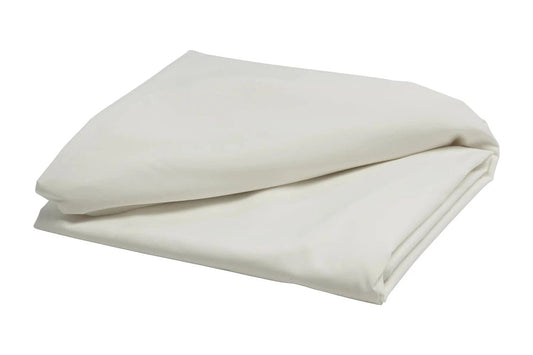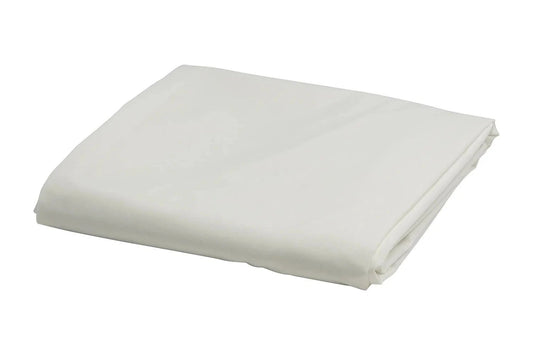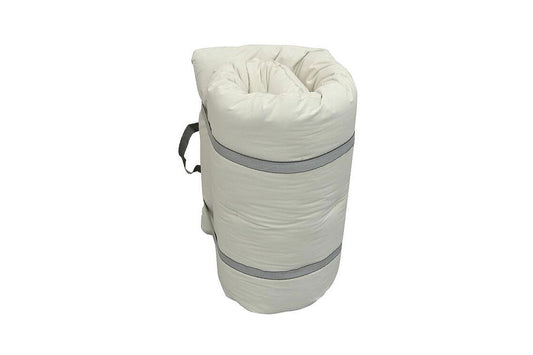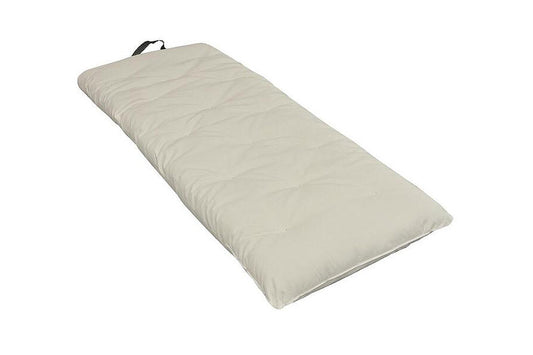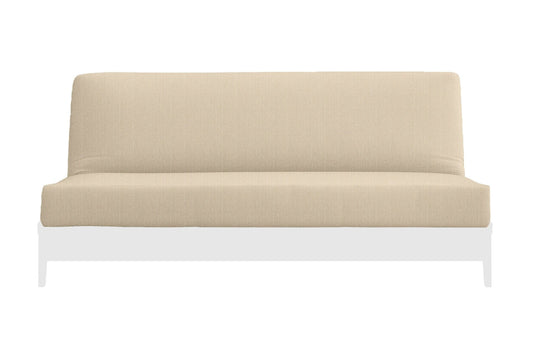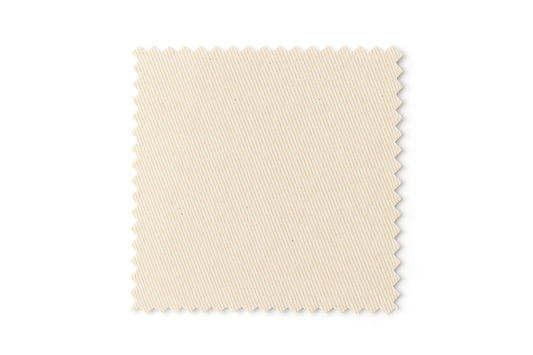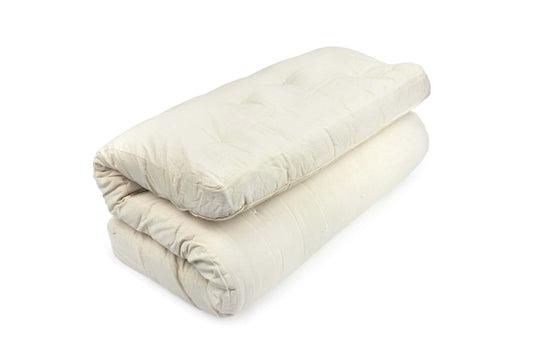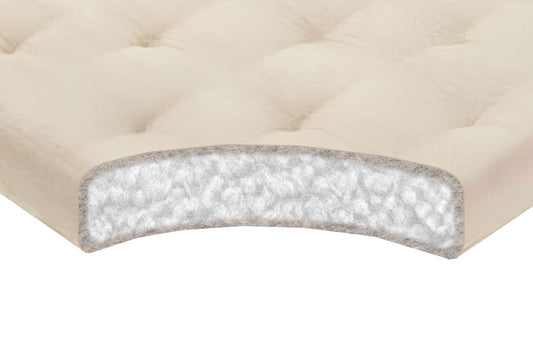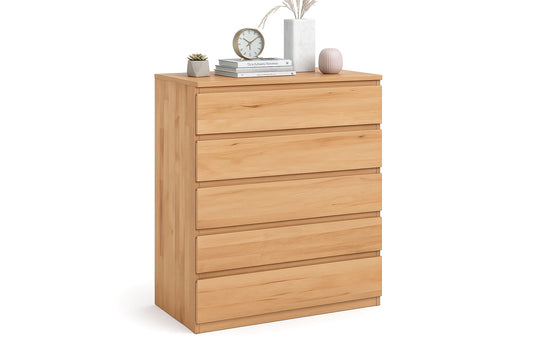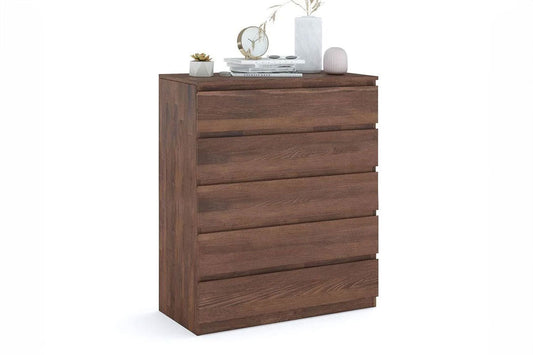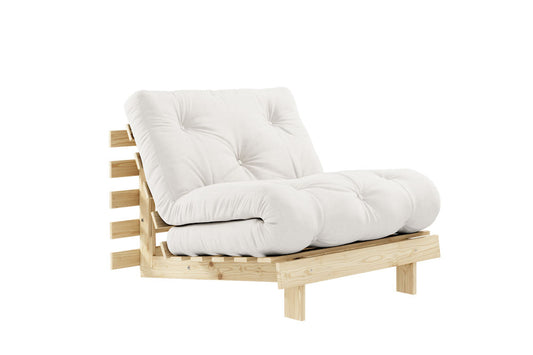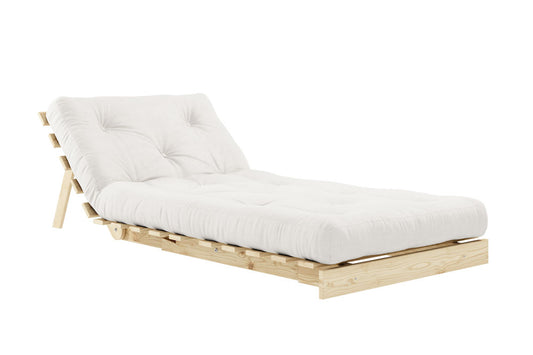
How Comfort Pure Ensures Ethical, Humane, and Sustainable Wool
Share
At Comfort Pure, we know that choosing natural bedding isn’t just about what’s inside — it’s also about how those materials are sourced and produced. Many conscious consumers wonder whether the sheep that provide wool for bedding products are treated with respect and whether the resulting wool is safe, clean, and sustainable. We take those concerns seriously. That’s why our commitment to ethical and humane wool sourcing runs deep, forming a cornerstone of how we do business.
Wool is prized not only for its ethical and sustainable sourcing but also for its remarkable natural performance. Wool offers superior pressure relief, gently adapting to the body to reduce pressure points and support restful sleep. Its high breathability and excellent temperature regulation help keep you comfortable year-round, staying cool in the summer and warm in the winter. Naturally hypoallergenic, wool creates an inhospitable environment for dust mites, while also resisting mildew and fungus growth. Additionally, wool helps dissipate static electricity, contributing to a calmer, more balanced sleep environment. This unique blend of benefits makes wool an ideal choice for healthier, more restorative rest. Explore our collection of natural wool bedding and mattress toppers to experience these benefits firsthand.
Why Ethical Wool Matters
Wool is naturally renewable, biodegradable, breathable, and an excellent temperature regulator, making it one of the best fibers for bedding. But while wool itself is sustainable, its benefits depend on how it is sourced.
At Comfort Pure, we believe true sustainability means prioritizing animal welfare, environmental stewardship, and transparency. That means respecting the health and natural behaviors of the sheep who produce this incredible fiber — ensuring they live in low-stress, humane conditions with access to open pasture, proper veterinary care, and gentle, low-stress shearing.
Healthy sheep produce higher-quality wool: fibers that are softer, more durable, and naturally resilient. When animals are treated well, everyone benefits — including you, the customer. That’s why our wool pillows and comforters are designed to deliver the purest, most responsibly sourced comfort.

Our Animal Welfare Practices
Our wool is sourced only from suppliers who meet strict, transparent animal welfare criteria:
- No mulesing: We reject any wool from sheep subjected to mulesing, a painful practice still used in some places to prevent flystrike. Our partners use humane alternatives instead.
- Freedom to roam: Sheep graze freely in open, natural pastures, expressing their natural behaviors and enjoying healthy social interactions.
- Low-stress shearing: Shearing is performed by trained professionals who handle the animals calmly, prioritizing safety and comfort.
- Veterinary care and good nutrition: Flocks have access to clean water, healthy feed, and qualified veterinary oversight to maintain their health and well-being.
Our wool is sourced primarily from regions with strong animal welfare and environmental standards, including New Zealand and the USA. Many of our partners hold respected certifications such as the Woolmark for quality and performance and SEDEX & SMETA for ethical supply chain practices. These third-party programs help verify responsible farming, humane animal treatment, and sustainable production from start to finish.
Natural Wool Mattresses: Breathable Comfort Made with Responsibly Sourced Materials
-
Natural Cotton and Wool Shiki Futon Mattress
Regular price From $279.99Regular priceUnit price / per$419.99Sale price From $279.99Sale -
Natural Cotton, Wool and Foam Futon Mattress
Regular price From $469.99Regular priceUnit price / per$709.99Sale price From $469.99Sale -
Natural Cotton, Wool and Latex Shiki Futon Mattress
Regular price From $879.00Regular priceUnit price / per$1,759.99Sale price From $879.00Sale -
Natural All Cotton Shiki Futon Mattress
Regular price From $199.99Regular priceUnit price / per$299.99Sale price From $199.99Sale -
Natural Cotton and Wool Japanese-Style Firm Futon Mattress
Regular price From $429.99Regular priceUnit price / per$589.99Sale price From $429.99Sale -
Natural Cotton, Wool and Foam Japanese-Style Medium-Firm Futon Mattress
Regular price From $559.99Regular priceUnit price / per$779.99Sale price From $559.99Sale -
Natural Cotton, Wool and Latex Japanese-Style Medium-Firm Futon Mattress
Regular price From $739.99Regular priceUnit price / per$1,029.99Sale price From $739.99Sale -
Natural Cotton, Foam and Pocket Spring Mattress
Regular price From $534.98Regular priceUnit price / per$1,069.96Sale price From $534.98Sale -
Natural Cotton, Foam and Innerspring Mattress
Regular price From $431.48Regular priceUnit price / per$754.96Sale price From $431.48Sale -
Natural Coconut, Latex and Wool Bed Mattress (Extra-Firm)
Regular price From $1,150.98Regular priceUnit price / per$2,301.96Sale price From $1,150.98Sale -
Natural Coconut and Latex Mattress
Regular price From $1,362.48Regular priceUnit price / per$2,724.96Sale price From $1,362.48Sale -
Natural Latex, Coconut and Wool Mattress (Extra-Firm)
Regular price From $1,074.98Regular priceUnit price / per$2,149.96Sale price From $1,074.98Sale
Organic Wool vs. Natural Wool: What’s the Difference?
When researching bedding, you might see products labeled organic wool or natural wool. They sound similar, but there are important differences.
Organic Wool
- Comes from sheep raised on certified organic farms
- No synthetic pesticides, hormones, or antibiotics used
- Processed without harsh chemicals, chlorine, or bleach
- Independently verified by organizations
- Naturally flame-resistant, breathable, and hypoallergenic
Organic wool is the best choice for those seeking a genuinely chemical-free, sustainable, and health-conscious sleep environment.
Natural Wool
- Comes from real sheep, but lacks certification
- May involve conventional pesticide use and standard chemical washes
- No required animal welfare standards or organic farming practices
- No third-party verification
While natural wool is still preferable to synthetic materials, it may carry residues from pesticides or chemicals used during standard farming and processing.
If you’re sensitive to chemicals or committed to an eco-friendly lifestyle, organic wool offers peace of mind and a healthier sleep.

Our Commitment to You
At Comfort Pure, ethical wool sourcing is not an afterthought — it’s a fundamental value. We believe that caring for animals, protecting the environment, and maintaining transparency with our customers are non-negotiable.
We know you choose natural bedding not only for comfort, but because you want to align your purchases with your values. That’s why we work exclusively with suppliers who share our commitment to responsible, compassionate practices.
Discover how our wool mattresses, toppers, pillows, and other organic wool bedding embody this mission.
Transparency You Can Trust
If you ever have questions about the wool in any of our products — whether it’s a mattress topper, comforter, or pillow — we encourage you to ask. We’re happy to share details about the certifications behind each product, where the wool comes from, and the animal welfare practices in place. Transparency builds trust, and that’s something we’re proud to stand behind.
Ethical wool sourcing is not only possible — it’s essential. From the well-being of sheep on open pastures to the health of your home, every Comfort Pure wool-filled product reflects our dedication to humane, sustainable practices. You don’t have to choose between conscience and comfort. With Comfort Pure, you can have both.
Shop our full range of wool bedding and mattresses and experience the difference of sustainable, compassionate comfort.


